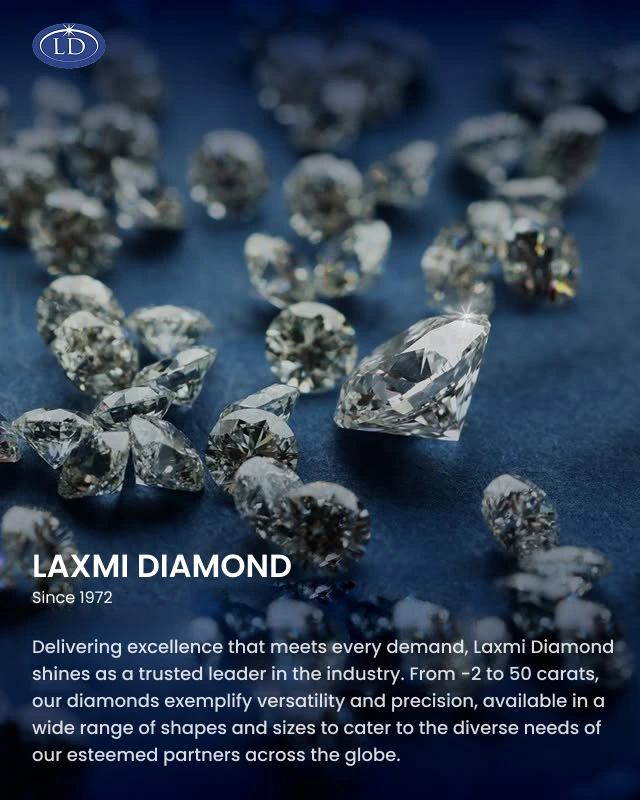
Exploring the Versatile Uses of Diamonds Across Industries
Diamonds are celebrated for their opulence and brilliant sparkle especially when embedded in jewellery. However, one might be surprised to understand that this extraordinary gemstone can be used for various other purposes. The superb properties of diamonds such as hardness, thermal, and optical conductivity have proved to be of great help in different industries.
In this blog, we have outlined some of the exceptional uses of diamonds across various industries:
1. Diamonds in Manufacturing
Diamonds are rated a perfect 10 on the Mohs scale. This makes them very useful in carving, grinding, and even drilling.

Abrasive Tools
In the production processes, industrious diamond abrasives are often utilized especially during the production of high-precision tools. For instance, diamond saw blades and drill bits are widely used to cut hard materials such as metal, glass and ceramic. The automotive industry heavily relies on diamond tools for machining engine components, ensuring high precision and surface quality.
Coatings for enhanced durability
Furthermore, they are used to coat cutting tools and machinery to improve their lifespan. For instance, diamond-like carbon (DLC) is used on metal surfaces to avoid rubbing and wearing out. This is useful in such cases where a tool is subjected to exploitation a Such application is prevalent in industries where the tools face extreme operational conditions, for example, aerospace and manufacturing.
Polycrystalline Diamond (PCD)
Polycrystalline diamonds (PCD) are synthetic diamonds used to make cutting tools for machining non-ferrous materials, such as aluminium, composites, and plastics. These tools offer excellent wear resistance and precision, making them ideal for high-speed machining operations.
2. Diamonds in healthcare

In the health sector, diamonds have found several uses, the key factor being their biocompatibility and ability to be sterilized.
Surgical instruments
Diamond-coated surgical instruments are increasingly common in operating rooms. Diamond edges are very sharp and very hard, thus, can be used for making clean incisions during surgery and minimizing damage to surrounding tissues. Instruments such as diamond scalpels help surgeons aim precise cuts.
Diagnostic tools
In biosensing approaches, diamond nanoparticles have been used as well. These nanoparticles may also contribute to the improvement of diagnostic accuracy, which will facilitate the diagnosing of diseases like cancer at an earlier stage. By using diamonds in biosensors, health professionals can get a better efficiency level of testing methods.
Dental applications
In dentistry, diamond burs and polishing tools are used due to their cutting and polishing abilities, especially on hard tissue. The use of diamond-coated dental implements increases the accuracy of procedures such as tooth preparation for cavities and tooth polishing, enhancing patient well-being.
3. Diamonds in technology
The diamond quite significantly also progresses in the technology industry specifically on electronic devices and in quantum computing.
Semiconductors and electronics
Diamonds have remarkable heat dispersal properties which makes them suitable for integration into electronic gadgets. Due to this reason, researchers are developing diamond semiconductors that can function at higher temperatures and voltages as compared to conventional silicon-based semiconductors. This development could result in power electronics that are more efficient and enhance the functionality of gadgets like electric cars and smartphones.
The quantum world
Furthermore, diamonds are essential to the developing subject of quantum computing. Nitrogen-vacancy (NV) centres in diamond crystals are being explored for their potential usage in quantum bits (qubits). Qubits have the potential to transform computing capacity by facilitating more intricate and rapid calculations. Diamonds are being aggressively explored by businesses and research centres for application in quantum technologies, putting them at the forefront of the tech revolution.
Optical tools
Additionally, diamonds are employed in optical systems like windows and lenses for high-performance lasers. They are perfect because they can transmit a broad range of wavelengths and are resistant to heat and wear.
4. Diamonds in energy
Diamonds have a positive impact on the energy industry, especially when it comes to the creation of sustainable energy solutions.
Nuclear power
Diamonds are being analysed for use in radiation detection in nuclear technology. They are appropriate for use as sensors in nuclear reactors due to their resistance to elevated radiation levels. Diamond detectors ensure the efficiency and safety of nuclear energy production by providing high-resolution and real-time monitoring capabilities.
Solar power
In the field of solar energy, diamonds are also causing a stir. In an effort to increase solar panel efficiency, researchers are looking into materials for photovoltaic cells that are based on diamonds. Diamonds' thermal qualities may increase energy conversion rates, opening the door to more efficient solar energy systems.

Batteries technology
The use of diamond materials for anodes and cathodes is being investigated as part of ongoing innovations in diamond-based battery technology. The heat conductivity and chemical stability of diamonds can improve battery performance, resulting in more effective and long-lasting energy storage solutions.
5. Diamonds in defence and aerospace

Because of their strength and heat resistance, diamonds are being used in the aerospace and defence industries.
Protective coatings
Turbine blades and engine parts, components that are subjected to high temperatures and wear, are coated with diamond-like carbon in the aerospace industry. These coatings improve the functionality and longevity of important parts found in aeroplanes and spacecraft.
Optical sensors
Diamond sensors are used in defence applications to identify and evaluate chemical and biological threats. They are useful tools for security and surveillance because of their sensitivity and dependability, which improves safety in a variety of settings.
Conclusion
There is no deliberation that diamonds are vital instruments that propel advancement and creativity in a wide range of sectors. From manufacturing to healthcare, technology, energy, and beyond, diamonds are making major contributions across varied industries.
They are essential in applications that call for accuracy, toughness, and creativity because of their special qualities, which include hardness, heat conductivity, and biocompatibility. Future research and technological advancements should lead to even more innovative applications for diamonds, securing their place as one of the most valuable commodities across a range of industries.








